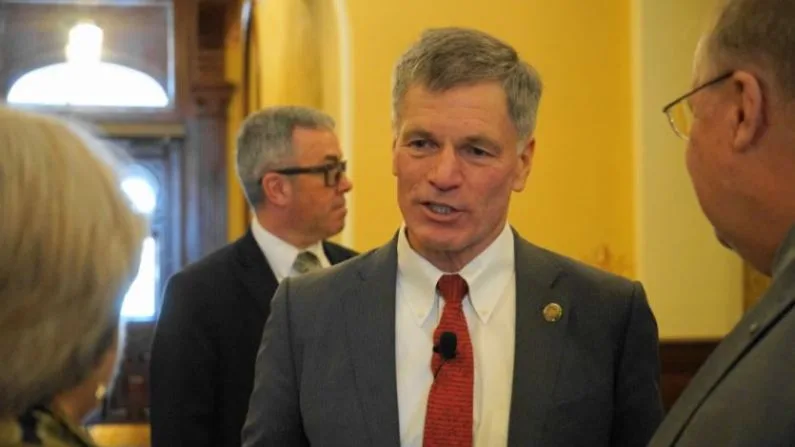March 26 update:
After initially shutting down thoughts of a special session Monday morning, Wyoming legislature leaders are now seriously considering it.
In a memo sent late last night, Senate President Ogden Driskill (R-Devils Tower) and House Speaker Albert Sommers (R-Pinedale) said they previously understood that a veto of Senate File 54 would mean any further legislative action on property tax relief this year would be impossible.
That bill would’ve cut 25% off assessed home values up to $2 million. Gov. Mark Gordon vetoed that bill last Thursday. In his veto, he said it represented, “a socialistic type of wealth transfer, mostly from the energy sector, to Wyoming homeowners.” The backfill of lost local tax revenue to local school districts, cities, towns, counties and special districts would likely cost the state more than $220 million for the biennium, the Governor wrote.
The legislative leaders say the Department of Revenue recently informed them that notification of this exemption is not required and property owners can be notified of the exemption in their September tax bills. With that information, they think it might be worthwhile to consider a special session.
The leaders are in discussion with the Governor and will send further information soon.
Original story:
On Saturday, March 23, Gov. Mark Gordon signed the budget presented to him by the Wyoming Legislative 67th budget session. But, his final signature came with many line-item vetoes. Almost immediately, the Wyoming Freedom Caucus called for a special session to respond to those vetoes.
The Governor thanked the legislature for including many issues that he outlined as important in his State of the State Address. Those included funding for the 988 suicide lifeline, school construction, property tax relief and increased savings for the future.
However, he also expressed disappointment with how close the legislature was to not passing a budget in a timely manner. The budget had over 300 amendments, which Gordon said were introduced to save legislation that had failed earlier in the session.
To set an example, he vetoed a couple of these amendments, including an allocation of $2 million to help update a failing water tank in Wheatland.
He also vetoed a section of the budget that defunds the University of Wyoming’s Office of Diversity, Equity and Inclusion (DEI), more specifically a line that would’ve prohibited any state funds from going to any DEI program, function or activity. Even with this line veto, Gordon kept the line that doesn’t allow any state funds to go to the UW DEI office itself.
He also vetoed language that placed limits on executive branch salary increases, saying it infringed on separation of powers.
The Wyoming Freedom Caucus has called for a special session to respond to the governor’s vetoes.
“Speaker of the House Albert Sommers (R-Pinedale) and President of the Senate Ogden Driskill (R-Devils Tower) chose to adjourn [the session] early, with three legislative workdays still available to complete the work of the people of Wyoming, foreclosing the ability to override the Governor’s vetoes,” wrote Wyoming Freedom Caucus Chairman Rep. John Bear (R-Gillette).
However, in an op-ed responding to those calls, Sommers and Driskill said that although they are also disappointed with the Governor’s vetoes, “a special session is unlikely to effectively address the Governor’s vetoes.”
They said all the bills and actions of the 2024 Budget Session by the Legislature are finished.
“We do not recall the legislators who are now clamoring for a special session formally asking us or the chambers to utilize our three extra days. The very legislators who are asking for a special session created delay after delay during the budget session by asking for roll call votes, trying to resurrect zombie bills, bringing procedural motions, and filibustering debate,” legislative leadership continued.
If a special session were called, it would cost approximately $35,000 per day. Driskill and Sommers said it would most likely take eight to 10 days, meaning upwards of $350,000 of taxpayer dollars.
If no special session is convened, the budget will go into effect July 1.
This reporting was made possible by a grant from the Corporation For Public Broadcasting, supporting state government coverage in the state. Wyoming Public Media and Jackson Hole Community Radio are partnering to cover state issues both on air and online.
This story is being updated with new information.






